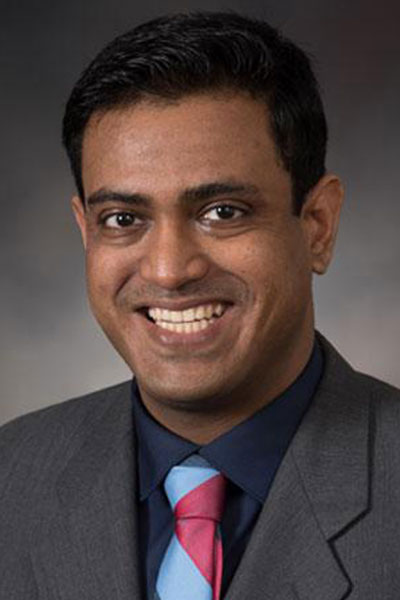Numerous interventions for the treatment of ARDS have been developed in the past half century, yet a debate continues on their applications for patients suffering from this condition.
Four critical care experts will explore the benefits and drawbacks of two disputed therapies—steroids and neuromuscular blockade—during the session, Catch Your Breath: A Pro-Con Debate on Controversies of ARDS Management, Tuesday, October 8, at 2:45 pm ET, in Room 210B of the Boston Convention & Exhibition Center.

“We’ve studied different interventions, and very few have definitively shown to have lifesaving implications in terms of improving survival in ARDS,” said Session Chair, Parijat Sen, MD, MBBS, FCCP, of the University of Kentucky College of Medicine. “For the rest, the jury’s still out as to not only if they work, but also who are the specific patients we should be applying these interventions to, what is the optimal timing for these interventions, and how should we be applying these interventions? This session will tackle some of those gray areas.”
The medical community has gone back and forth on whether and how steroids should be used in ARDS. Karan Singh, MD, FCCP, of Graves Gilbert Clinic, will present the case for steroids making a prime-time comeback in ARDS, while Dr. Sen will argue that there may still be reason to hold back.
“If you look at the clinical practice guidelines and recommendations from recent years, they still acknowledge the fact that we don’t know exactly what to do for the patients,” Dr. Sen said. “That’s what we’ll debate, and [we’ll] also talk about what our individual practices may be and the evidence backing those decisions.”
He said this conundrum of steroid use in ARDS was tested heavily during the pandemic.
“We had a lot of patients with COVID-19 infection having ARDS,” Dr. Sen said. “Then the data from the RECOVERY study showed that steroids may be a beneficial therapy for some of these patients who need oxygen or in full-blown ARDS. This, along with a few recent studies showing benefits, has definitely got the critical care community thinking again about using steroids in ARDS.”
Bhavna Seth, MD, MPH, of Johns Hopkins Medicine, and Anneka Hutton, MD, of the University of Alabama at Birmingham, will debate the efficacy and benefits of early neuromuscular blockade in ARDS. A study from France in 2010 showed that early neuromuscular blockade in ARDS had a mortality benefit, but a larger, multicenter study in 2019 put those findings into question, thus fueling a controversy over this intervention.
“Since then, we’ve had a lot of practice variation, with some people who really like to pull the trigger on neuromuscular blockade early in ARDS and some people who are especially worried about the side effects, such as needing to deeply sedate these patients and [the patients] developing long-standing consequences like muscle weakness,” Dr. Sen said.
Drs. Seth and Hutton will discuss which patients with ARDS should undergo neuromuscular blockade and under what conditions, the optimal strategies, and how to best minimize the harm that can come with it.
Join us at CHEST 2025
Save the date for the next Annual Meeting, October 19 to 22, 2025, in Chicago. CHEST 2025 will explore the latest advancements in pulmonary, critical care, and sleep medicine, with a focus on innovation and the future, just as the city itself embodies progress and reinvention.





